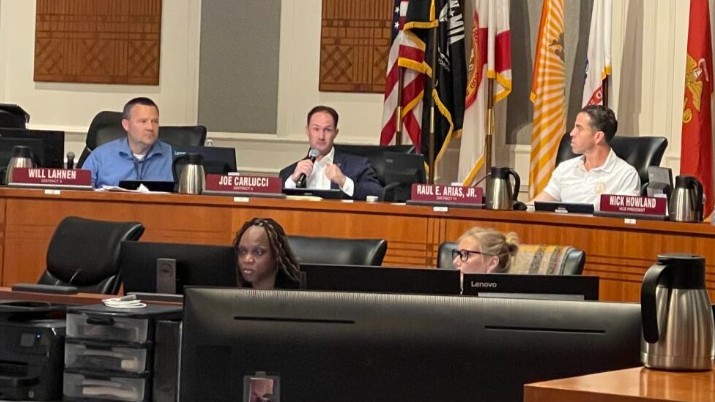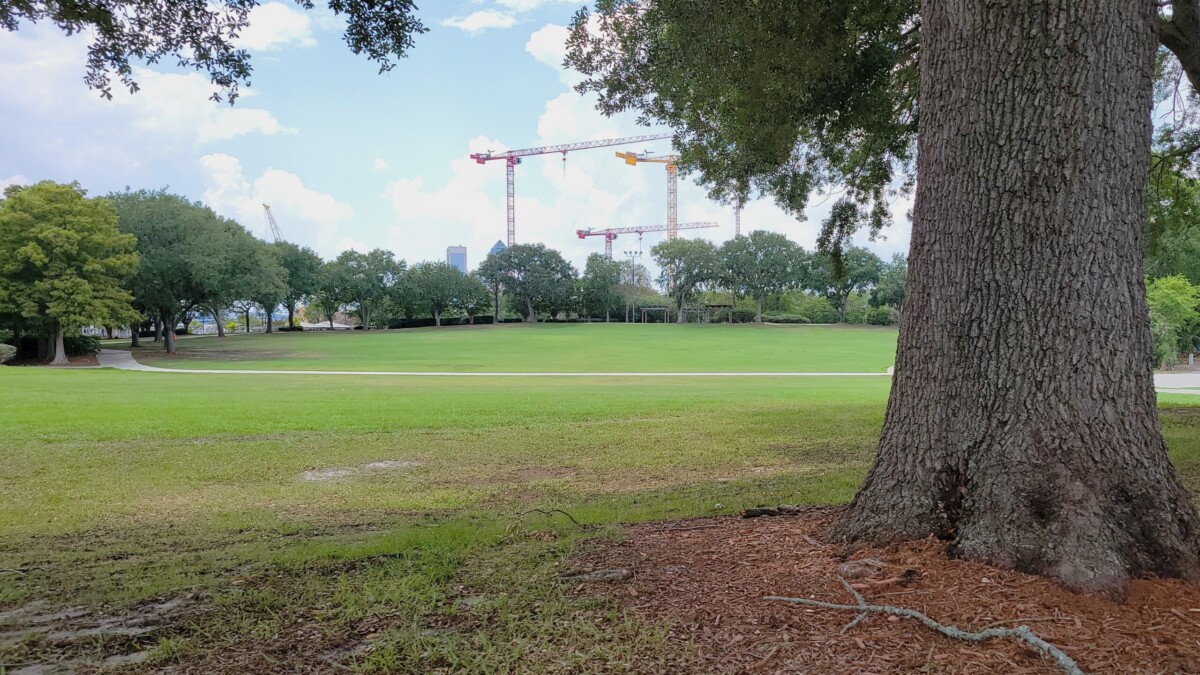Calling for “prudence,” a group of prominent civic and business leaders has added its voice to the debate about reducing property taxes in Jacksonville.
The Jacksonville Civic Council issued a statement Monday saying that “reducing revenue at this time is inconsistent with maintaining public safety, ensuring quality of life, and managing growth.”
“Jacksonville’s long-term fiscal health is at stake,” the group said in a letter to Mayor Donna Deegan and City Council. “We urge our elected officials to choose sound fiscal policy over political expedience.”
The statement came just days after the heads of the city’s police and fire unions said that public safety will be at risk if the City Council follows through with plans to reduce property tax millage by ⅛-mill.
Civic Council is expected Tuesday to take the first of two votes on the proposed millage and city budget, which the council’s Finance Committee already approved.
The millage cut would lock in an almost $14 million drop in projected revenue next year. The Finance Committee proposes to offset the revenue loss by cutting close to $27 million from Deegan’s $2 billion proposed budget. The biggest reductions would come from increases in spending on affordable housing, homelessness programs and Edward Waters University.
Many council members say the reduction is needed to give residents financial relief in a time of rising costs. Deegan has said the amount of savings per taxpayer is not worth the loss of services she considers essential to a “world class city.”
Deegan thanked the Civic Council for speaking out, as she did the police and fire unions last week.
“It’s time to move forward, not backward,” she said in a statement.
The Civic Council commended City Council and the mayor for key initiatives to move the city forward, including investments in public safety, Downtown’s planned University of Florida graduate campus and a renovated EverBank Stadium.
Those projects, plus upgrades and improvements to the city’s infrastructure, are “essential for our community’s growth and continued prosperity,” the Civic Council said.
But the group warned that the projects “carry real and growing costs. A token millage rate rollback questions the sustainability of these projects over time.”
The statement also noted that Jacksonville spends about half as much per resident on services and infrastructure as other large Florida cities and maintains the lowest millage rate among them.
“The Civic Council urges policymakers to be thoughtful and act with prudence,” the letter says.
The letter is addressed to Deegan and City Council President Kevin Carrico and was copied to the other 18 council members.
The letter is signed by Civic Council Chairman Gary Chartrand, who is also executive chairman of Acosta and board chairman of KIPP: Jacksonville Schools. Five of its finance committee members co-signed it, including former Mayor John Peyton.







